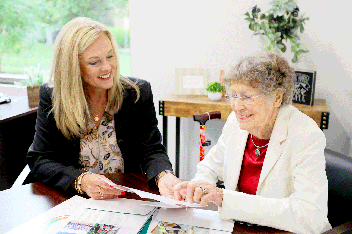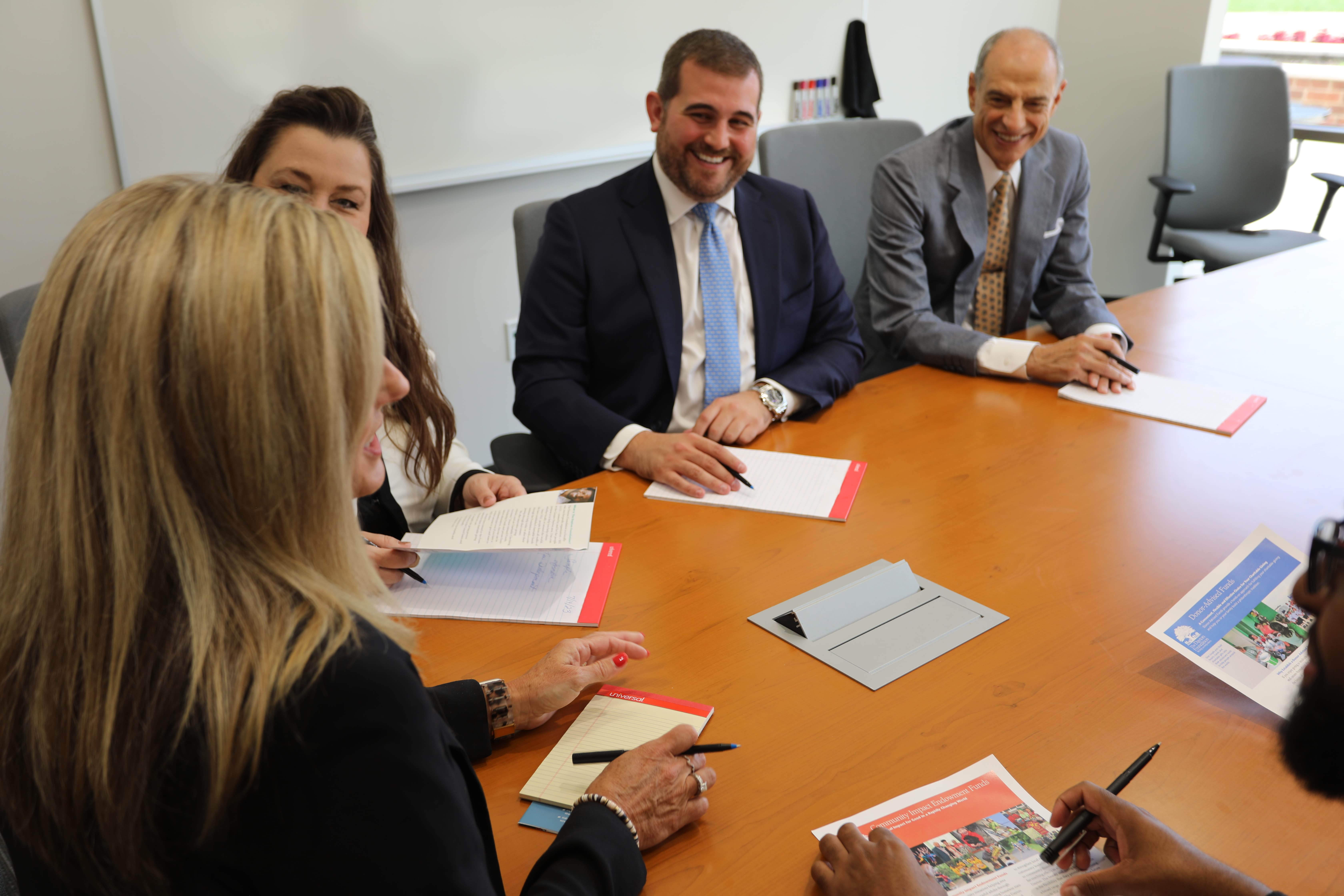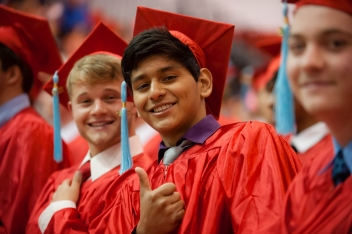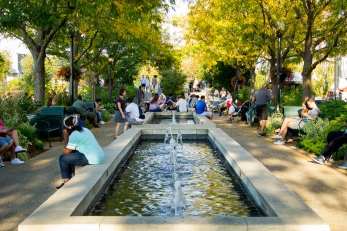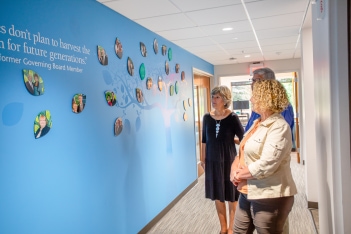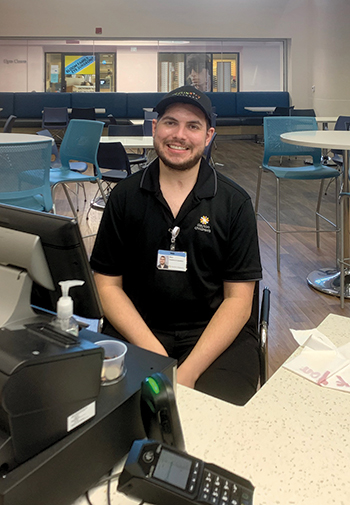
Alex Lovett working at Dayton Children's
On September 9, 2012, Mary and Ed Lovett woke to the news that their son, Alex, was a passenger in a high-speed car crash. Immediate life-saving surgery stopped a brain bleed and swelling, but it would take seven months and multiple surgeries for the recent high school graduate to regain consciousness. As the result of his injuries, he was robbed of all memories, including those of his parents and friends. He spent the following year relearning how to walk and do other basic tasks.
Despite Alex’s traumatic brain injury and the life-altering effects it has had on them, the Lovetts are grateful for the many local resources that are available – from the healthcare professionals who saved his life, to community organizations that have helped them navigate his new normal. Getting to this point, however, has not been an easy journey. The strain TBIs put on individuals and their families can seem insurmountable as they reimagine their loved ones’ futures and forge new paths.
We are grateful for this partnership with The Dayton Foundation and its innovative support to the local community.
– Dr. Susan Davies, University of Dayton Brain Health Collaboratory
“There were so many things we had to learn by trial and error, like applying for disability,” Mary Lovett said. “We only learned about the Montgomery County Board of Development Disabilities Services when Alex went through an evaluation process and found out he was not yet ready to hold a job.”
To help families like the Lovetts, The Dayton Foundation recently awarded a $450,000 grant over three years to the University of Dayton Brain Health Collaboratory, an initiative launched in 2021 by UD Professor Dr. Susan Davies to help coordinate care, education and community outreach for TBIs.
“Our region has many talented healthcare providers, educators and researchers working on issues related to TBIs and brain health,” Dr. Davies said. “This initiative will help coordinate and grow their efforts. We are grateful for this partnership with The Dayton Foundation and its innovative support to the local community.”
In addition to the grant, the Foundation has placed Del Mar Encore Fellow Pam Morgan with BHC to assist with its efforts, such as developing a marketing and awareness campaign and conducting a survey to collect data on the needs of local families of people with TBIs. This work has helped identify community partners to lead four focus areas, including a continuum of care and health equity (Goodwill Easterseals Miami Valley), interdisciplinary education (Clark and Montgomery County Educational Service Centers), applied research (Greater Dayton Area Hospital Association) and marketing, awareness and promotion (Montgomery County Alcohol, Drug Addiction and Mental Health Services). Dozens of other community partners will provide staff to serve on the four committees as well.
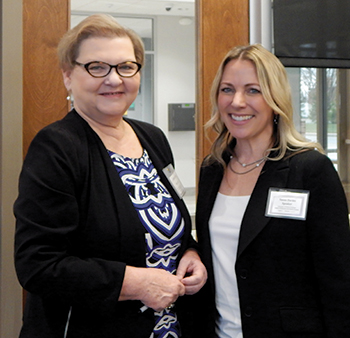
Del Mar Encore Fellow Pam Morgan (left) and Dr. Susan Davies at the Brain Health Collaboratory’s symposium last March, which brought together 60 educators and medical professionals to learn more about TBIs.
In addition to these efforts, Pam, along with BHC and the Foundation’s Community Engagement Department, organized a TBI symposium last March to help educators and medical professionals better understand how to recognize and respond to TBIs. More than 60 participants attended 12 breakout sessions at the symposium, which is planned to become an annual event.
Dayton Foundation Governing Board Member L. Tony Ortiz initiated the Foundation’s decision to adopt this effort as a leadership initiative after meeting Jenness and Mark Sigman. The Sigmans created Play4Payne Foundation, a nonprofit to help TBI survivors after their son, Payne, suffered one as the result of a car accident in 2014. Thanks in part to the care and support he received during his recovery, Payne has since graduated from high school and college, earning a master’s degree in clinical mental health counseling from UD in 2022.
Mary Lovett is encouraged to know that coordinated resources from BHC now will be available in Greater Dayton and will allow families like hers to focus on what’s really important – their loved ones’ recoveries.
“As a TBI family, we struggled with transitioning from one stage of brain recovery to the next, because the information is so fragmented. We didn’t know what to ask, what to expect or what was available,” Mary said. “It will be so great to have all of this information in one place and to obtain information through every part of brain recovery.”
Never give up. Disability is nothing. It’s just a word.
– Alex Lovett, TBI survivor
Wrapping services around TBI patients is crucial in effecting positive outcomes for individuals like Alex. He now works at Dayton Children’s as a cashier in the cafeteria, employment he was able to secure through a program of GESMV that provides him with transportation and a job coach while he works. With this support, Alex has been recognized multiple times for his excellent customer service at Dayton Children’s. He also recently was inducted into the MCBDDS’s Hall of Fame.
“Never give up. Disability is nothing. It’s just a word,” said Alex, in a video featuring his induction. “Exceed your limits – at your job, at your life, at anything you do.”


